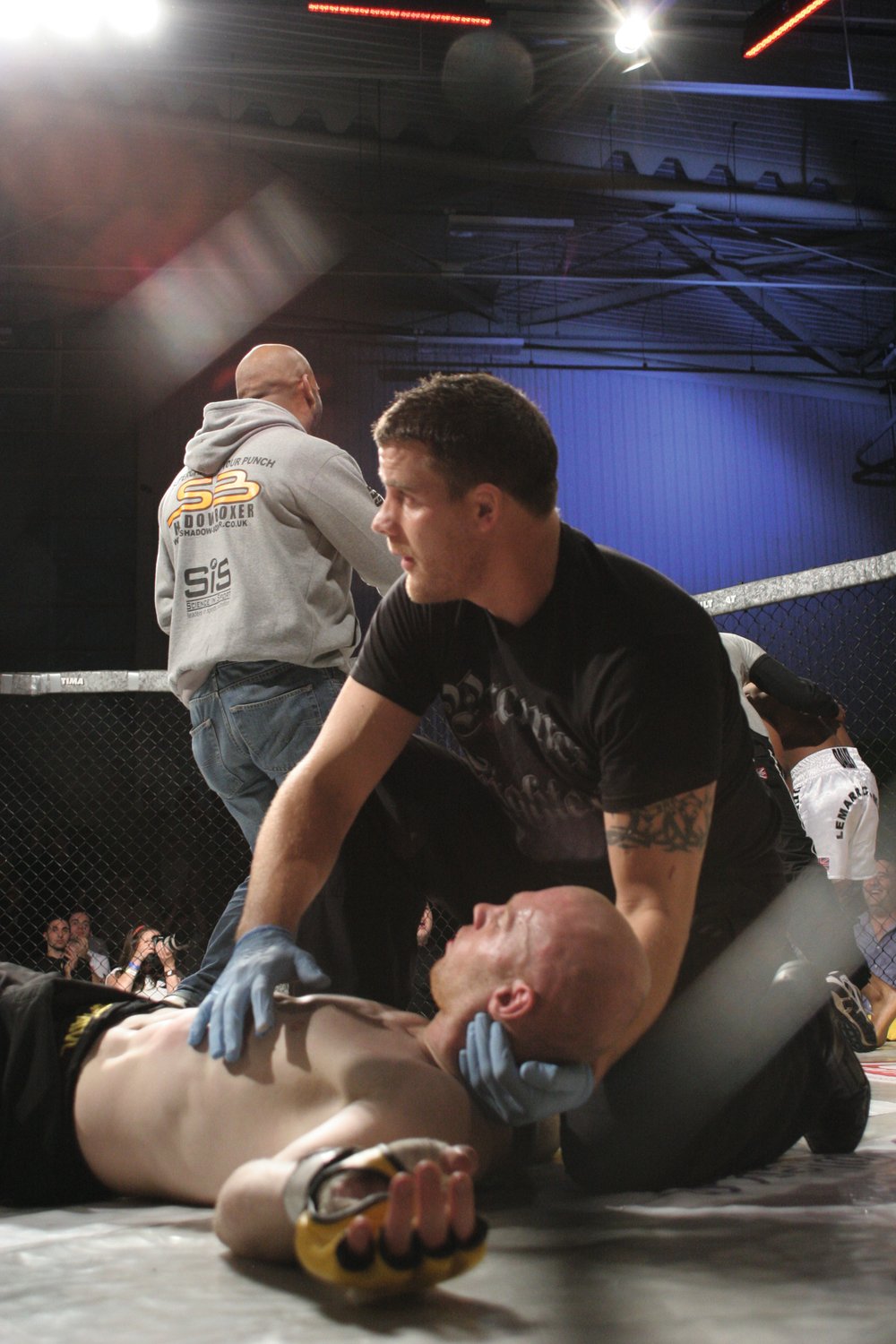
Issue 070
December 2010
UFC referee Marc Goddard brings fight fans the ref’s side of the story. Here, Rousimar Palhares signals to the referee during a bout... and Nate Marquardt pounces.
We’ve seen it happen several times of late: one of the combatants raising a question, motioning or even gesturing to the referee in charge that ‘something may be up’ during the in-fight flow of a contest.
I’d like to explain the action a referee should take might this situation arise. The adages “protect yourself at all times” and “obey my instructions and commands at all times”, which every ref tells both fighters at the beginning of the bout, could call a halt to this discussion. Not adhering to these commands breaks the unified rules and places a conversing fighter in danger of being separated from his senses, should he choose not prioritize the risk from his opponent.
A referee has many duties come fight time. None more so than protecting the fighters’ safety, and allowing the two combatants to exchange freely within the confines of the rules. But we can’t be in two places at once. Nor do we have eyes in the backs of our heads. We rely on the team around us to help and assist. Any athletic commissions and their respective members are also responsible for the actions and conduct of fighters, plus their camps, right up until the moment they’re handed over to the referee inside the cage. If an athletic commission isn’t present then we rely on the promoter to provide suitable personnel. In the unlikely event of a camp or fighter calling “foul”, during the bout or after, then a concerted effort is required not just from the referee but also the team around him.
Specifically let’s consider an ‘in fight’ scenario. A fighter believes and wrongly implies that his opponent has foreign substances applied to his body, as Rousimar Palhares so visably gestured in his recent clash with Nate Marquardt at UFC Fight Night 22.
Palhares made the fatal error of gesturing to the referee mid-contest, thus taking his eye off his opponent, breaking the concentration of the referee and putting himself in immediate danger. Marquardt had a single-track mind, and the correct one – he attacked until the referee said otherwise.
Referees cannot stop a contest to hear allegations. It’s simply unjust and nowhere near the confines of the rules. The referee’s there to do his job, the promoter and/or commission theirs – and the fighters, too. The responsibilities attributed to each party’s role and authority need to be clear, and understood by all concerned.
Protect yourself at all times, obey my instructions and commands at all times – and unless you hear otherwise, please, keep fighting.
Q&A: ASK THE REF
Don’t know your DQs from your decisions? Marc answerS your questions on the ‘Unified Rules’ used in MMA
Why do you wear rubber gloves?
Steve, Tynemouth
The Ref says: Hi Steve. We wear rubber gloves due to the increased risk of coming into contact with a fighter’s blood. Of course, at the highest level fighters are screened. But for general health and safety, going from one fight to the next it’s hygienic and good safe practise all round.
Do refs have favourite fighters?
Chris Beaver
The Ref says: Good question Chris! Naturally, as a referee, impartiality and professionalism are our number one rules. But many fighters have my admiration and respect. Legends of the sport, high octane exciting fighters, grudge matches, controversial figures, and genuine contenders... all add up to a great prospect for fight fans around the world. Please don’t forget us referees are fight fans at heart. But once that cage door closes the two competitors standing to my opposing sides are just that, and my job takes over. Strictly nothing else.
...










